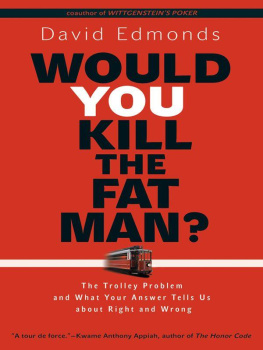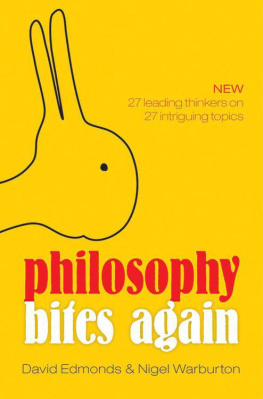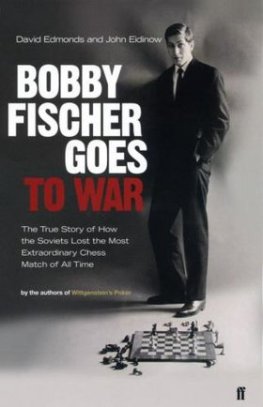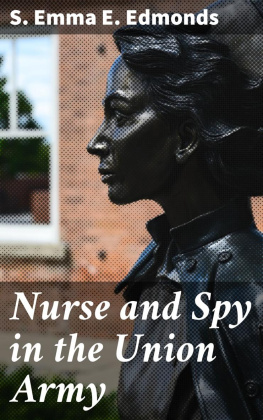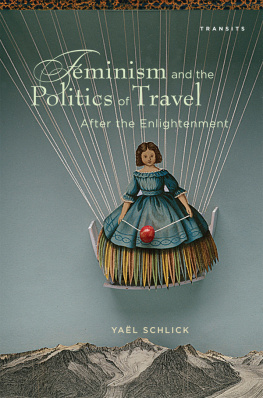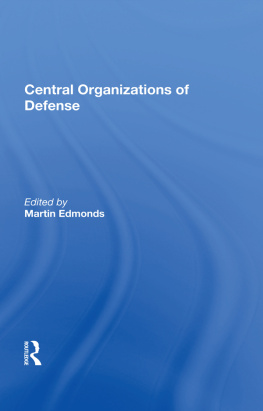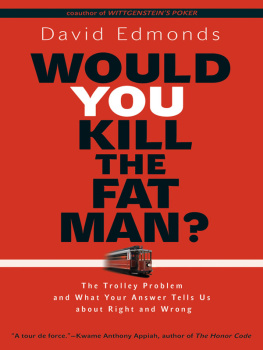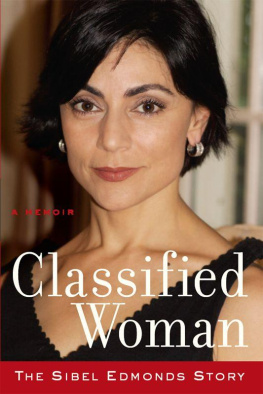David Edmonds - The Murder of Professor Schlick
Here you can read online David Edmonds - The Murder of Professor Schlick full text of the book (entire story) in english for free. Download pdf and epub, get meaning, cover and reviews about this ebook. year: 2020, publisher: Princeton University Press, genre: Detective and thriller. Description of the work, (preface) as well as reviews are available. Best literature library LitArk.com created for fans of good reading and offers a wide selection of genres:
Romance novel
Science fiction
Adventure
Detective
Science
History
Home and family
Prose
Art
Politics
Computer
Non-fiction
Religion
Business
Children
Humor
Choose a favorite category and find really read worthwhile books. Enjoy immersion in the world of imagination, feel the emotions of the characters or learn something new for yourself, make an fascinating discovery.

- Book:The Murder of Professor Schlick
- Author:
- Publisher:Princeton University Press
- Genre:
- Year:2020
- Rating:4 / 5
- Favourites:Add to favourites
- Your mark:
- 80
- 1
- 2
- 3
- 4
- 5
The Murder of Professor Schlick: summary, description and annotation
We offer to read an annotation, description, summary or preface (depends on what the author of the book "The Murder of Professor Schlick" wrote himself). If you haven't found the necessary information about the book — write in the comments, we will try to find it.
The Murder of Professor Schlick — read online for free the complete book (whole text) full work
Below is the text of the book, divided by pages. System saving the place of the last page read, allows you to conveniently read the book "The Murder of Professor Schlick" online for free, without having to search again every time where you left off. Put a bookmark, and you can go to the page where you finished reading at any time.
Font size:
Interval:
Bookmark:
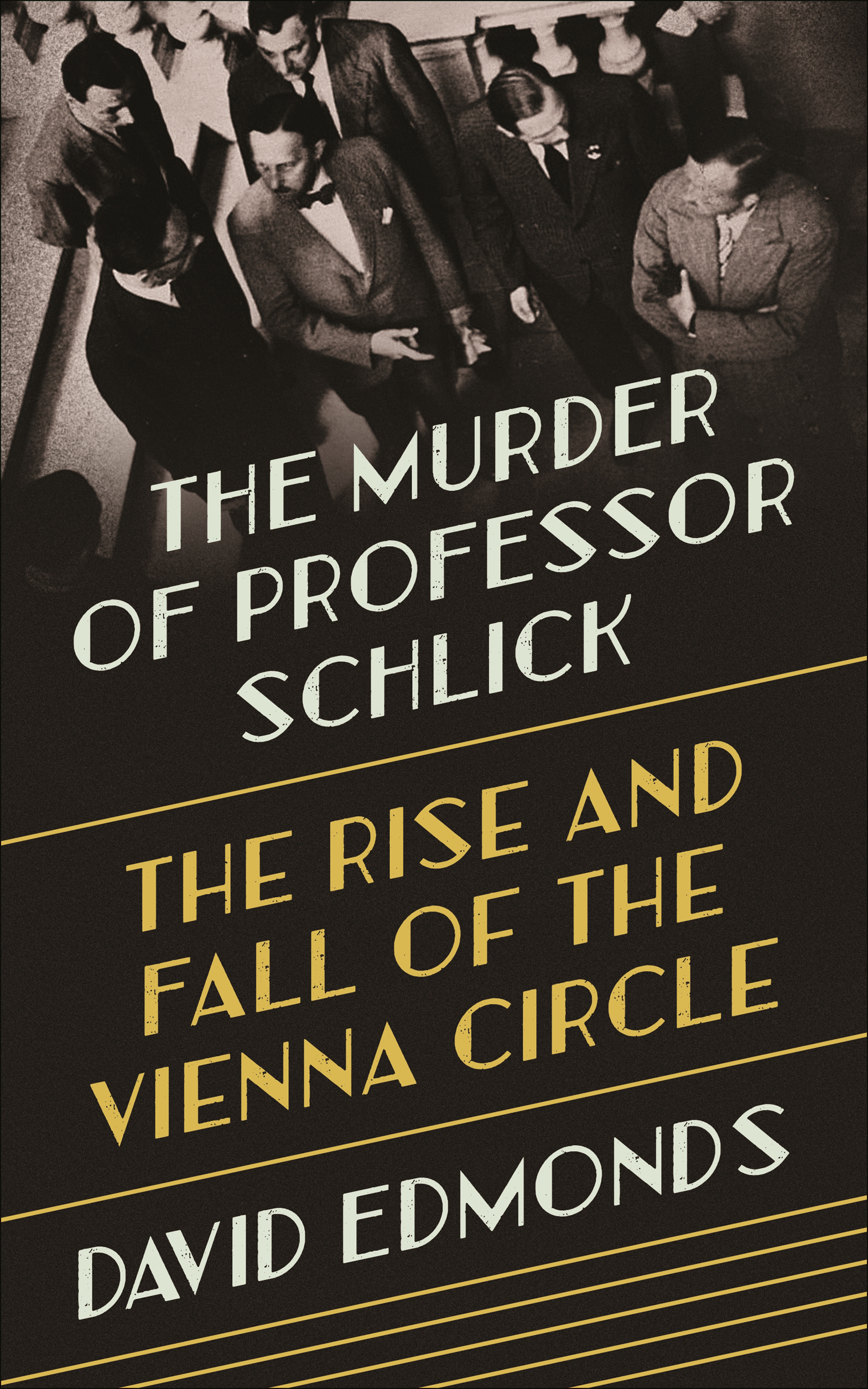
THE MURDER OF PROFESSOR SCHLICK
The Murder of Professor Schlick

THE RISE AND FALL OF THE VIENNA CIRCLE
David Edmonds
PRINCETON UNIVERSITY PRESS
PRINCETON AND OXFORD
Copyright 2020 by Princeton University Press
Requests for permission to reproduce material from this work should be sent to permissions@press.princeton.edu
Published by Princeton University Press
41 William Street, Princeton, New Jersey 08540
6 Oxford Street, Woodstock, Oxfordshire OX20 1TR
press.princeton.edu
All Rights Reserved
Library of Congress Cataloging-in-Publication Data
Names: Edmonds, David, 1964 author.
Title: The murder of Professor Schlick : the rise and fall of the Vienna Circle / David Edmonds.
Description: Princeton : Princeton University Press, [2020] | Includes bibliographical references and index.
Identifiers: LCCN 2020018766 (print) | LCCN 2020018767 (ebook) | ISBN 9780691164908 (hardback) | ISBN 9780691185842 (ebook)
Subjects: LCSH: Vienna circleHistory.
Classification: LCC B824.6 .E36 2020 (print) | LCC B824.6 (ebook) | DDC 146/.42dc23
LC record available at https://lccn.loc.gov/2020018766
LC ebook record available at https://lccn.loc.gov/2020018767
Version 1.0
British Library Cataloging-in-Publication Data is available
Editorial: Rob Tempio and Matt Rohal
Production Editorial: Kathleen Cioffi
Text Design: Lorraine Doneker
Jacket Design: Karl Spurzem
Jacket image courtesy of the Austrian National Library, Picture Archives and Graphics Collection
- vii
- xi
AS A TEENAGER, I had a rather low opinion of God (it was quite possibly reciprocated) and was contemptuous of the ethical judgments of my elders. Perhaps thats why I raced through the first book of philosophy that was ever thrust at me, and it hooked me on philosophy for life. A. J. Ayers Language, Truth and Logic dismisses statements about God as meaningless. It rejects the idea of objectivity in morals. It has a wonderful, bravura style, free of doubt. It scorns philosophical predecessors: problems that have beset philosophy for two millennia, such as questions about God and ethics and aesthetics, are decisively laid to rest.
I didnt fully appreciate at the time that the ideas in this book had essentially been recycled. They originated not in Oxford, England, but in Vienna, Austria. Theyd been lifted almost (but not quite) whole from a group of mathematicians, logicians, and philosophers called the Vienna Circle.
A quick note on terminology. Members of the Circle were logical empiricists, sometimes called logical positivists. Positivism is the view that our knowledge derives from the natural world and includes the idea that we can have positive knowledge of it. The Circle combined this position with the use of modern logic; the aim was to build a new philosophy. But the term logical positivism was only introduced in an American journal in 1931, and I will follow the practice of most scholars of the Vienna Circle in talking about logical empiricism. Labels aside, logical empiricism was for a time, starting in the early 1930s, the most ambitious and fashionable movement in philosophy. Many of its central tenets have now been discredited, but its impact is still felt today. Analytic philosophythe dominant form of philosophy in Anglo-American philosophy departments with an emphasis on the analysis of languagewould not exist in its current form without the Circle. The Circle might not have had all the answers, but they posed most of the right questionsquestions with which philosophers continue to grapple.
There have been some magnificent works of scholarship devoted to the Circle. This book aims to be of more general interestto explain who the members were, what became of them, why they were significant, and, in particular, to understand them within the milieu in which they thrived.
The Vienna Circle was a philosophical group. But it cannot be understood in isolation. It arose in a city in which art and music and literature and architecture also flourished. The Austrian capital is a principal character in these pages. A birthplace of modernism, it was home to psychoanalyst Sigmund Freud and composer Arnold Schoenberg, journalist Karl Kraus and architect Adolf Loos, novelist Robert Musil and playwright Arthur Schnitzler. The Circles ideas complemented or competed with others circulating around Vienna.
Then there were politics and economics. The backdrop to the Circle was economic catastrophe and the rising political extremism to which the Circle itself would eventually fall victim. I want in this book both to give a sense of the revolutionary and evangelizing nature of the Circles philosophy as well as the troubled times in which the Circle operated. Ive come to believe that whatever its scholarly merits the Circles project, especially its attack on metaphysics, made it inescapably political, creating powerful enemies on the Far Right who were bound, in the end, to destroy it.
Viennas always held a peculiar fascination for me. Much of a previous book, written with John Eidinow, Wittgensteins Poker, was set in Vienna. In the personal sphere, my mother is half Viennese. My grandmother, then Liesl Hollitscher, studied law at the University of Vienna roughly at the same time as the younger members of the Circle were studying there too. My family, like many in the Circle, was middle-class, assimilated Jewish, and, like many in the Circle, blind to the extreme turn that politics would take.
Writing the book has posed some challenges. One is the philosophy. The reason that there have been so few accessible texts on the Circle is because the philosophy is so complex. I have given only a schematic description of the Circles philosophical positions and the various philosophical disputes in which members were embroiled, both within the Circle and between the Circle and its opponents. But I also include, without apology, some (sometimes difficult) philosophy; an account of the Circle without covering philosophy would be like a history of an orchestra without mentioning music.
Then there are the characters. The Vienna Circle contained some fascinating figures, including several who merit (and some who have been awarded) full-length biographies in their own right. Inevitably, some of these figures have loomed larger than otherssuch as the extraordinary Otto Neurath, virtually unknown outside philosophy. It would need a book five times as long to do equal justice to them all.
We live during a time where phrases like post-truth and fake news are bandied around. In this environment, empiricism is more relevant than ever. And my hope is that this work will do something to revive interest in a brilliant set of thinkers who thrived in a vanished world and with whose intellectual spirit its easy to sympathize.
David Edmonds
@DavidEdmonds100
SORRY, I have a lot of people to thank. I will start with those to whom I owe the most.
I had already been researching this book for several years before I approached Thomas Uebel, one of the worlds leading experts on the Vienna Circle. I had some questions I wanted to put to him and asked if I could visit him in Manchester, where he is a professor. It turned out that he is frequently in London and we met, as people discussing the Vienna Circle ought to meet, in a gemtlich coffee shop. It was the first of many long caffeine-fueled sessions in which he put me right on various matters Viennese. He also read the entire manuscript, correcting errors. He is not responsible for my interpretation of the Circle nor for the mistakes that no doubt remain. But thank you, Thomas, for being so incredibly generous with your time and knowledge. The book would have been much worse without you.
Font size:
Interval:
Bookmark:
Similar books «The Murder of Professor Schlick»
Look at similar books to The Murder of Professor Schlick. We have selected literature similar in name and meaning in the hope of providing readers with more options to find new, interesting, not yet read works.
Discussion, reviews of the book The Murder of Professor Schlick and just readers' own opinions. Leave your comments, write what you think about the work, its meaning or the main characters. Specify what exactly you liked and what you didn't like, and why you think so.

